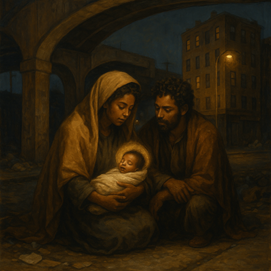Understanding Pope Leo XIV's Dilexi Te: "I Have Loved You" by Fr. Matthew Hawkins
-
October 15, 2025
 In his new apostolic exhortation Dilexi Te ("I Have Loved You"), Pope Leo XIV offers our Church a profound meditation on God's love revealed through solidarity with the poor.
In his new apostolic exhortation Dilexi Te ("I Have Loved You"), Pope Leo XIV offers our Church a profound meditation on God's love revealed through solidarity with the poor.
The Holy Father structures his teaching in four movements, like a musical composition of divine mercy.
First, he reminds us that God revealed Himself in Scripture by hearing the cries of the oppressed: "I have observed the misery of my people." The poor aren't merely objects of charity—they're a lens through which we encounter God Himself.
Second, in the Incarnation, this compassion took flesh. Christ didn't merely teach about poverty; He embraced it—homeless, excluded, crucified. As St. Paul writes, "Though He was rich, He became poor." God saves by entering our destitution, not by avoiding it.
Third, the Church continues this movement. We are Christ's body only when we recognize our own poverty and find our treasure in the poor. From the early deacons to St. Francis, from medieval hospitals to today's food pantries, holiness is measured by our proximity to suffering.
Finally, Pope Leo calls us to contemporary mission: making love tangible through education, hospitality, and liberation. We must renounce comfort and speak with mercy's authority.
For our parish, this means Dilexi Te isn't just beautiful theology—it's a call to action. Our service to the poor isn't auxiliary to our faith; it's essential. When we encounter suffering, we encounter Christ. When we serve the vulnerable, we make God's love visible in our community today.